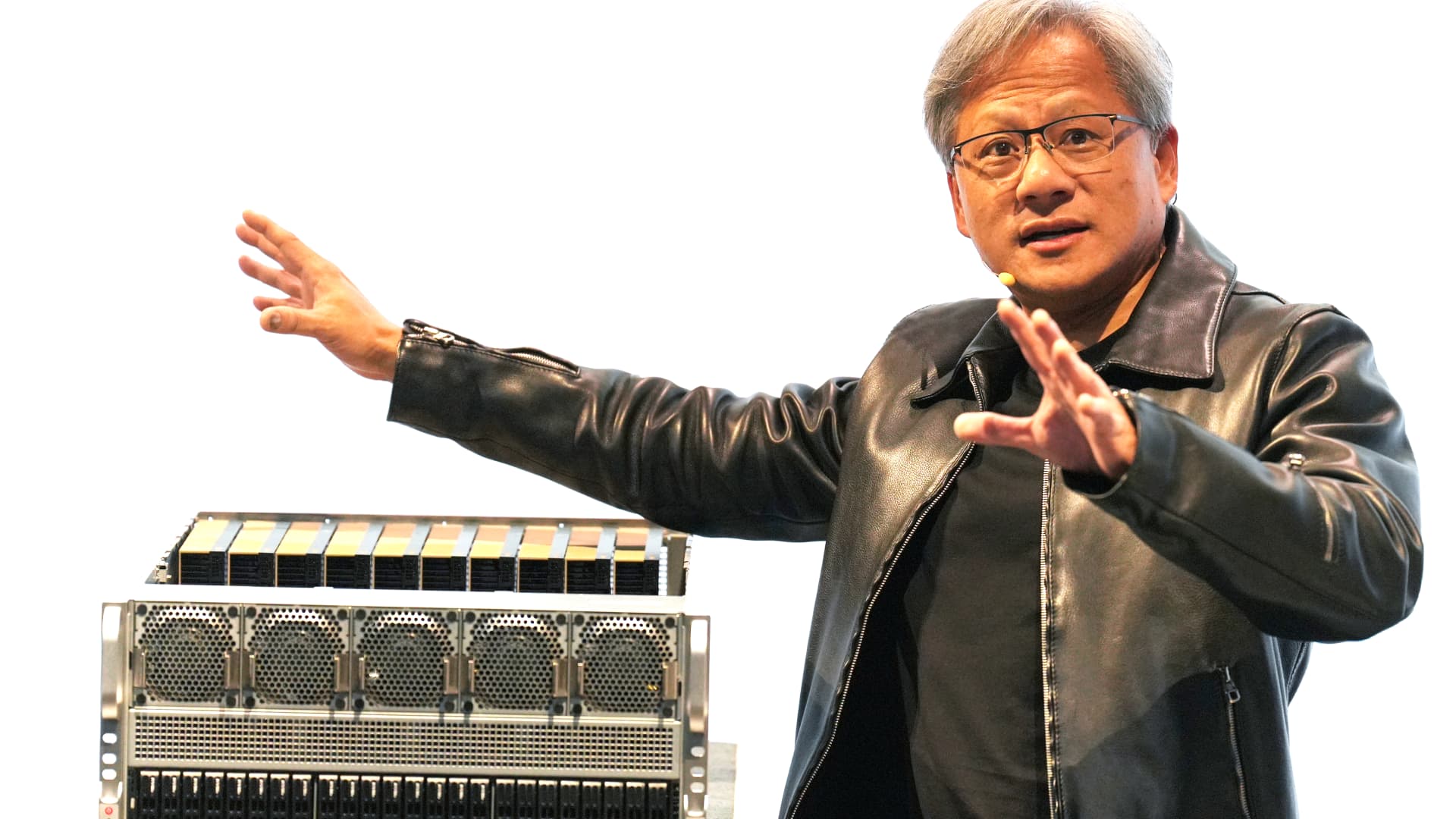
Investors have become so enamored with Nvidia’s artificial intelligence story that they want a piece of anything the chipmaker touches.
On Wednesday, Nvidia disclosed in a regulatory filing that it has stakes in a handful of public companies: Arm, SoundHound AI, Recursion Pharmaceuticals, Nano-X Imaging, and TuSimple.
With the exception of Arm, which topped $130 billion in market cap recently, shares of the Nvidia-backed companies soared Thursday following the 13F filing, a form that must be submitted by institutional investment managers overseeing at least $100 million in assets.
But none of these investments would be surprising to anyone who took the time to sift through old news reports and filings. The AI mania is firmly in an irrational exuberance phase, and investors are pouncing on anything and everything in the space.
No stock is hotter than Nvidia, which passed Amazon in market value Tuesday and then Alphabet on Wednesday to become the third-most-valuable company in the U.S., behind only Apple and Microsoft. Nvidia shares are up more than 200% over the past 12 months due to seemingly limitless demand for its AI chips, which underpin powerful AI models from Google, Amazon, OpenAI and others.
SoundHound, which uses AI to process speech and voice recognition, jumped 67% on Thursday, after Nvidia disclosed a stake that amounted to $3.7 million at the time of the filing. Nvidia invested in SoundHound in 2017 as part of a $75 million venture round.
SoundHound went public through a special purpose acquisition company in 2022, and Nvidia was named in its presentation as a strategic investor.
Nano-X uses AI in medical imaging. Nvidia’s disclosure of a $380,000 investment in the company sent the stock up 49% on Thursday. Nvidia’s involvement dates back years to a venture investment in Zebra Medical, an Israeli medical imaging startup. Nano-X acquired Zebra in 2021.
TuSimple, an autonomous trucking company, rocketed 37% on Thursday after the disclosure of Nvidia’s $3 million stake. The share rally comes a month after the company announced plans to delist from the Nasdaq due to a “significant shift in capital markets” since its 2021 IPO. TuSimple debuted at $40 a share and now trades for roughly 50 cents.
“Accordingly, the Special Committee determined that the benefits of remaining a publicly traded company no longer justify the costs,” TuSimple said in a release Jan. 17. “The Company is undergoing a transformation that the Company believes it can better navigate as a private company than as a publicly traded one.”
Nvidia invested in TuSimple in 2017, four years before the IPO.
Nvidia acquired its stake in biotech company Recursion more recently. Like TuSimple, Recursion went public in 2021, but Nvidia bought in two years later through what’s called a private investment in public equity, or PIPE. Nvidia bought $50 million worth of shares in 2023 and now has an investment worth $76 million, according to its filing.
Recursion shares spiked 14% on Thursday.
Nvidia’s own financials will be on full display next week, when the company reports quarterly earnings. Analysts are expecting year-over-year revenue growth above 200% to more than $20 billion.
The company’s more recent investments are likely to be much more significant than its earlier bets, disclosed late Wednesday, because they’re at the heart of the AI boom. In recent years, Nvidia has backed hot AI startups including Cohere, Hugging Face, CoreWeave and Perplexity.
“AI is transforming the way consumers access information,” said Jonathan Cohen, Nvidia’s vice president of applied research, in Perplexity’s announcement of a $73.6 million funding round in January. “Perplexity’s world-class team is building a trusted AI-powered search platform that will help push this transformation forward.”
Don’t miss these stories from CNBC PRO:
- Three stocks that could replace Tesla in the ‘Magnificent 7’
- Morgan Stanley hikes Nvidia price target ahead of earnings: ‘AI demand continues to surge’
- Vanguard launches two new ETFs to hit this sweet spot of tax-free fixed income
- Berkshire Hathaway topped $600,000 a share last week, aiming at $1 trillion market value




